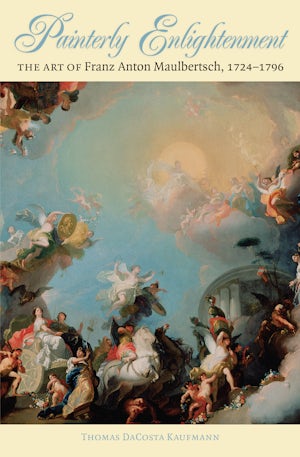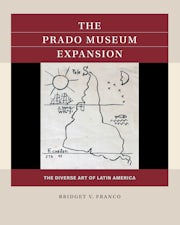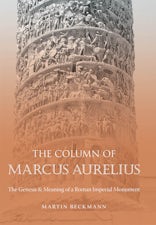Painterly Enlightenment
The Art of Franz Anton Maulbertsch, 1724-1796
By Thomas DaCosta Kaufmann

206 pp., 6.125 x 9.25, 36 color / 52 b&w illus., notes, index
-
Paperback ISBN: 978-1-4696-1480-9
Published: February 2014
Bettie Allison Rand Lectures in Art History
Buy this Book
Kaufmann situates Maulbertsch as a fresco painter at a time of transition to easel painting, a colorist at a time when color was not fully appreciated by contemporary observers, and an interpreter of religious themes at a time when secular subjects were becoming more popular. In this analysis, he is shown caught between the intellectual forces of the Enlightenment and the waning power of the traditional church, thus helping to illuminate the relationship between the Enlightenment and the arts. Kaufmann provides a thorough foundation for the fresh recognition of one of the great painters of eighteenth-century Europe, a leading fresco painter who is a colorist worthy of comparison to the best of his contemporaries, including the celebrated Venetian artist Giovanni Battista Tiepolo.
About the Author
Thomas DaCosta Kaufmann is professor in the department of art and archaeology at Princeton University. He is author of many books, including the award-winning The School of Prague: Painting at the Court of Rudolf II; Court, Cloister and City: The Art and Culture of Central Europe; and Towards a Geography of Art.
For more information about Thomas DaCosta Kaufmann, visit
the
Author
Page.
Reviews
"[Painterly Enlightenment: The Art of Franz Anton Maulbertsch] is an elegant and illuminating volume in which the author presents several possible ways of interpreting Maulbertsch as an Enlightenment painter."--H-German
"A splendidly lucid study that finally gives the great fresco painter his due. Scholars have never quite known how to fit the idiosyncrasies of Maulbertsch's corpus into the broader canon of art history. Kaufmann does just that and more, establishing Maulbertsch's artistic distinctiveness but also his complex relationship to the emergent Enlightenment culture of Habsburg Austria."--James Van Horn Melton, Emory University



